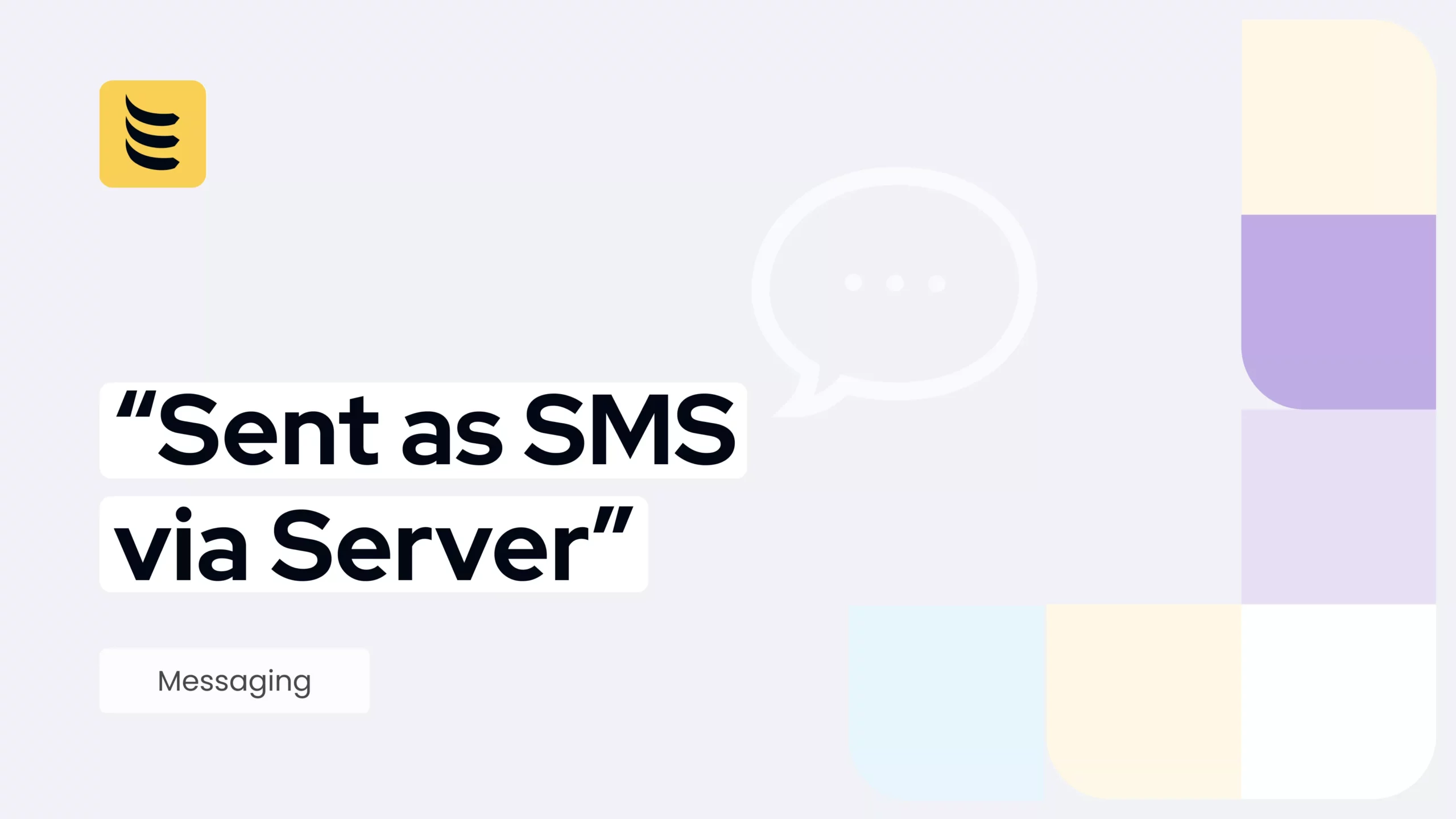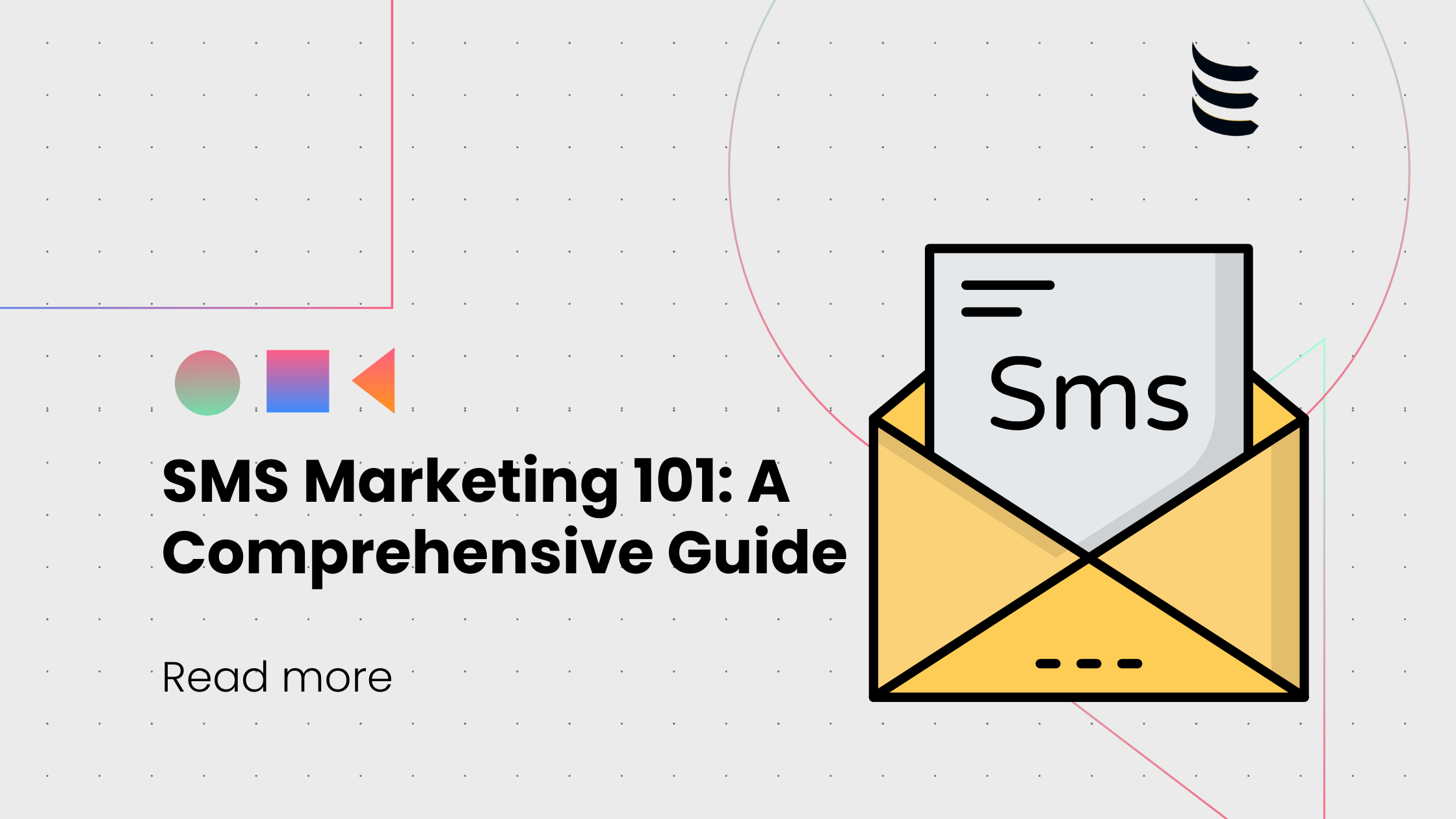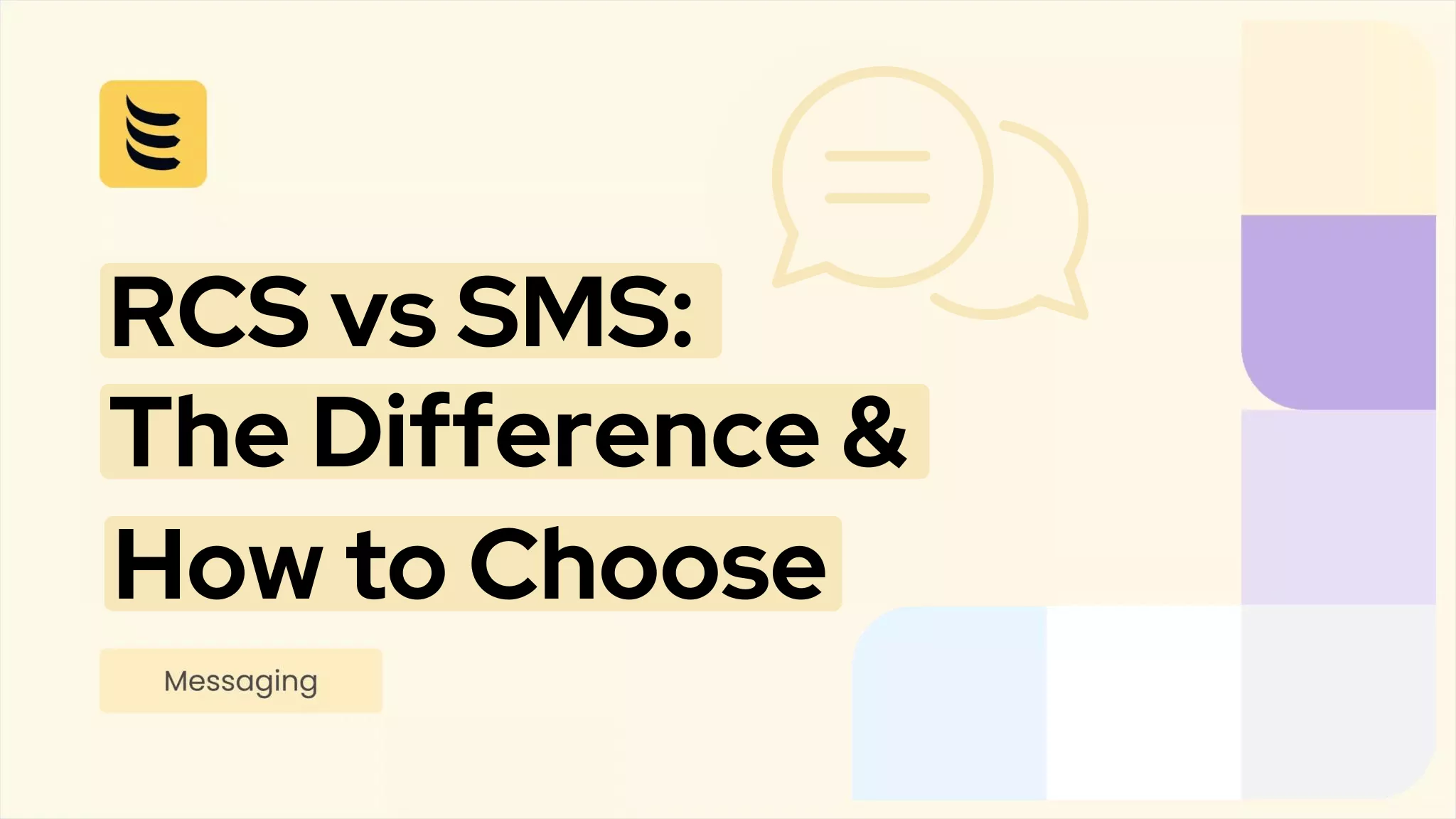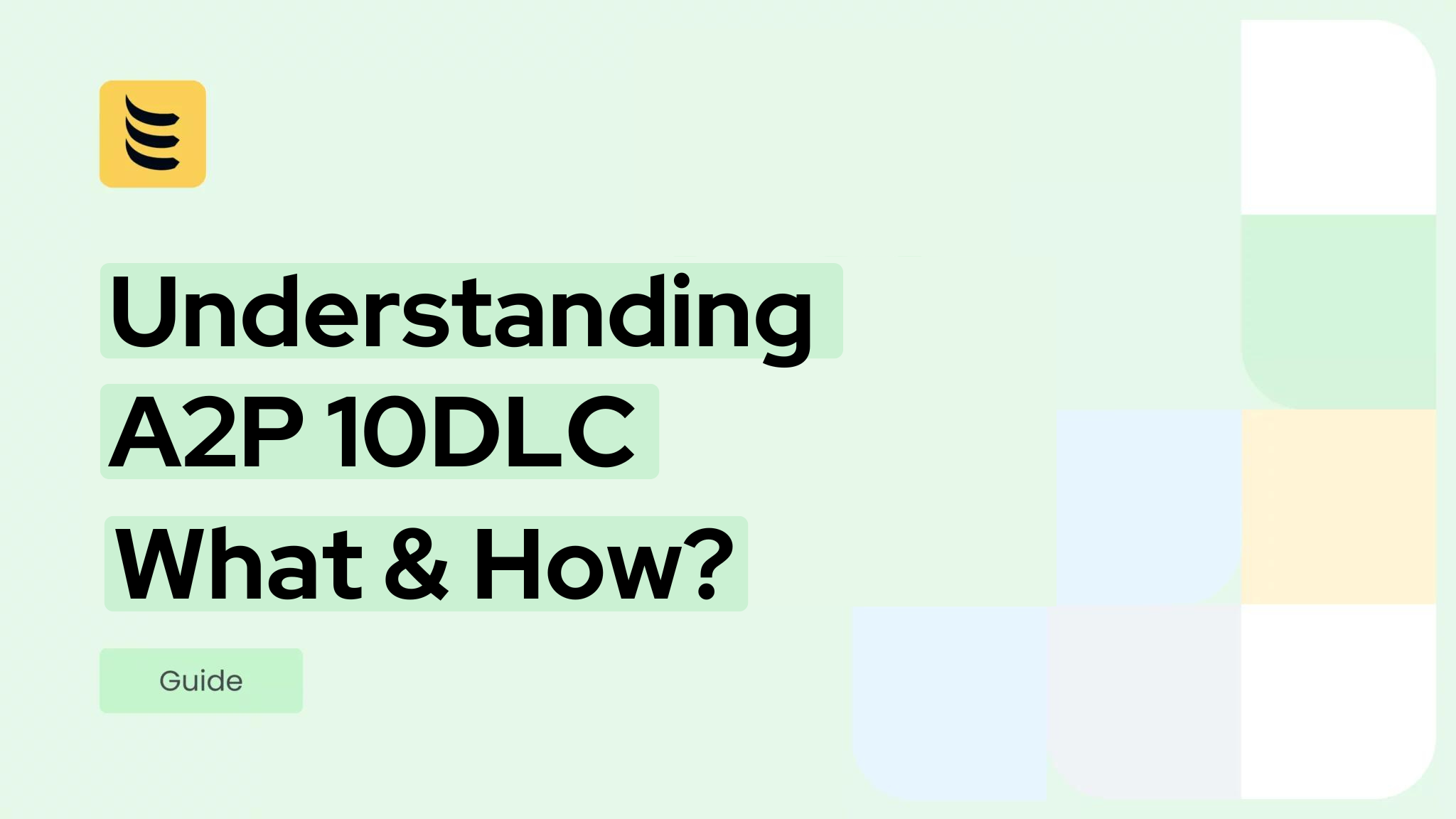As the recipient of an SMS text message, you may occasionally have noticed an accompanying notification that says something like “sent as SMS via server”. If you regularly receive SMS messages – or if you routinely send them out as part of your business – you may be wondering about the significance of this phrase.
In this article, we explain what “sent as SMS via server” actually means and consider what this meaning implies in the context of business SMS communications.
What is the Meaning of “Sent as SMS via Server?”
In regards to an SMS message that you receive with a “delivered” notice that says “sent as SMS via server” or “sent as an SMS via server,” this notification means that the sender created this message using a device other than a mobile phone – that is, the “server” referred to in the notice. Practically speaking, this server may be a computer, laptop, tablet, or specialist application with Wi-Fi access.
Users of Android smartphones will typically see a “sent as SMS via server” advisory when the person they are about to text is no longer connected to RCS or Rich Communication Services. This is an advancement on traditional SMS (Short Message Service) and MMS (Multimedia Message Service), which was introduced in 2007 to offer a much wider range of features for text messages, more in line with modern instant messaging apps.
On Android, “sent as SMS via server” typically indicates that a reliable RCS connection has not been established. Under Rich Communication Services, both parties must be connected to an RCS service profile for seamless communication.
If the recipient’s connection isn’t perfect, RCS defaults to sending the message as a regular SMS through its server to avoid an unnecessary delay. Under these conditions, the message recipient does not have the usual read receipts of “Sent, Delivered, or Read” visible.
Messages transmitted using Rich Communication Services operate over a data connection and are usually free. When an RCS connection cannot be established, and a “sent as SMS via the server” scenario occurs, messages are charged according to the network operator’s subscription plan.
For the message recipient, “sent as SMS via server” usually doesn’t represent a significant SMS cost or convenience burden. However, users who find these notifications too annoying or too frequent can disable them by disabling SMS fallback for RCS.
To do this, Android users can open the Messages app on their phone and click on their profile photo in the top right corner to open settings. Clicking on Messages settings > General > RCS chats opens the option to disable Automatically resend as a text (SMS/MMS).
This said it is not generally recommended to disable SMS fallback for RCS. It is a useful feature that ensures recipients get their vital messages irrespective of the message delivery route. Sending SMS messages through a server also extends benefits to the message sender.

The Advantages of Sending SMS via a Server
Parties who send SMS messages via a server will typically do so through an SMS text messaging platform. This platform will provide software that enables the sender to transmit SMS messages from their computer or device.
An SMS platform will also provide advanced messaging features. These will typically include tools that enable the sender to organize their contacts from their local computer. A text messaging platform will also provide tools for drafting messages (often with customization and personalization options), sending bulk SMS, and monitoring the performance of text messaging campaigns.
An SMS messaging platform may also offer automation features. With these tools, senders can easily draft specialized SMS message templates or schedule and send instant reminders to customers and clients about upcoming appointments, meetings, and events.
Sending SMS via a server in this way gives the sender the advantage of a range of advanced messaging and monitoring tools, accessible and visible through the user interface of a computer or laptop. This larger screen and tool format (when coupled with a mouse, touchpad, and/or keyboard) makes it easier to manage your message output and monitor its success.
Form succesfully sent ;)
Wider Implications of Sending SMS via a Server
Sending SMS via a server forms a subset of the larger communications ecosystem of Application-to-Person or A2P messaging.
Also known as business SMS or enterprise SMS, A2P SMS is a type of short message service (SMS) communication whereby a software application run by an enterprise sends a text message to a consumer’s device. Its converse is P2A or Person-to-Application messaging, where a customer initiates an SMS conversation with a software application. An example of this would be viewers voting for their favourite reality show contestant in a setting like “Big Brother.”
In an A2P SMS scenario, there is typically one-way communication between the enterprise and the consumer, with messages not requiring a direct response. This makes Application-to-Person messaging ideal for business use cases like marketing campaigns, the sending of promotional codes, appointment reminders, bank alerts, and shipping notifications.
Optimizing Your SMS via Server Operations
By its very nature, Application-to-Person messaging defaults to sending SMS messages via a server. Properly used, it can provide a 24/7 instant communication channel with your customers – one that delivers helpful content which improves their lives and their interactions with your brand.
In order to get the most out of Application-to-Person messaging, you first need to understand where exactly your organization will benefit from an A2P SMS solution. Typical scenarios include the following:
- Multi-Factor Authentication (MFA) or Two-Factor Authentication (2FA): Here, your organization can use SMS transmissions via a server to send a One-Time Password (OTP) to the customer’s mobile device to verify their identity and/or confirm a particular transaction.
- Real-Time Alerts: Use messaging platform automation to configure and send real-time alerts to consumers in response to certain types of activity.
- Customer Support: Organizations can send SMS messages via servers to provide customer support and assistance on popular social media platforms and applications like Facebook Messenger and WhatsApp.
- Providing Status Updates: Travel and hospitality organizations can use A2P SMS to keep guests and passengers informed about their reservations and tickets.
Choosing the Right Messaging Platform for SMS via Server
To ensure the success of your SMS messaging via server or A2P SMS efforts, you should choose a partner that can provide you with an enterprise-grade service.
IDT Express is committed to powering enterprises to craft unbeatable SMS experiences for their customers globally. With IDT’s SMS API, you can drive engagement and sales in just a few clicks and create your highest revenue channel with personalized campaigns that convert.

An SMS API or Short Message Service Application Programming Interface can greatly simplify the task of connecting apps to multiple messaging platforms. SMS APIs enable software developers to integrate SMS functionality into their own applications, websites, or systems, facilitating the automation of SMS communication.
With the IDT Express SMS API, you can use two-way messaging to engage in interactive conversations with your audience and allow recipients to respond to your SMS messages, enabling a seamless communication loop. You can also go beyond plain text and enrich your SMS messages with multimedia content. Our platform supports multimedia messaging via WhatsApp, Viber, and FB Messenger.
Our SMS OTP APl provides the swiftest, most highly secure, and most cost-effective solution for user verification and authentication. IDT Express also offers a secure, highly reliable Wholesale SMS gateway service enabling businesses to provide outbound one-way A2P communications.
To find out more about how IDT Express can assist with your A2P SMS and SMS via server communications, visit our website, or book a demo.




